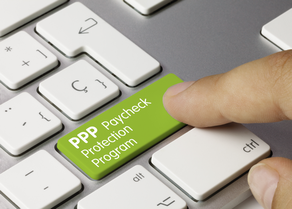In Pursuit of Profit
Read our expert article below or sign up to get articles sent to your inbox.
 Previously, we put together a business record retention resource to answer the question, “How long do you need to keep business records?” It gave clear record retention recommendations based on standard business practices for tax filings, audits, property ownership, insurance, employment records, and permits/licenses. And yet, only five years later we’re revisiting the topic because there is growing confusion around how long companies and nonprofits should retain their records now that so many of them are digital. The question we’re being asked today is, “How long do I need to keep digital business records – are the rules different?”  Originally published: 7/31/2018 When we published this article originally, it was almost two years before the pandemic changed day-to-day accounting activities and the way bookkeepers and accountants work. What we have seen in the years since is an uptick in financial professionals asking questions around the timing for things like reconciliations and reporting. The monthly or quarterly schedules they once leaned on for basic accounting activities seem to have gone by the wayside in favor of more frequent, or even real-time, generation and analysis. Bank reconciliations in particular are becoming increasingly important for organizations in today’s rapidly shifting business landscape. As financial transactions are getting more complex, cyber fraud is becoming more prevalent, compliance requirements are increasing, and timely financial decision-making is more important than ever before, bank reconciliations are at the epicenter of today’s accounting activities.
 Last year $2.47B was donated to US nonprofit organizations on GivingTuesday, a whopping 19% increase over the previous year. Only time will tell if this year surpasses last year’s record-breaking numbers. But what we know for sure is that on this GivingTuesday both individuals and companies nationwide will give to their favorite nonprofit charities. As a business owner, you need to be aware of how these charitable contributions will be accounted for on your books not just on GivingTuesday, but year-round. 8/7/2020 PPP Loan Accounting So, you secured a Paycheck Protection Program (PPP) loan from the SBA, now what? Most businesses do not need help figuring out how to spend this money. However, when it comes to accounting for the loan, plenty of businessowners are confused about how to handle it correctly.
You asked, so we are providing a guide to help you navigate the waters. Follow this PPP bookkeeping how-to guide to keep your books clean after receiving your loan: During an audit, financial inaccuracies are typically uncovered that have broader business implications. Whether these inaccuracies are the result of fraud, mistakes, or ignorance, they can have deleterious effects. Internal audits may unearth problems that negatively affect financial statements and financing attempts, while federal tax audits can identify issues that result in costly fines and penalties.
Understanding which inaccuracies auditors find most often provides a foundation for self-imposed accountability. Focusing on areas where problems typically exist equips business owners with the information needed to improve financial accuracy and make smarter business decisions. Furthermore, exercising extra caution around common problem areas protects the integrity of financial reporting, ensuring that the business’ financial position will be accurately represented to potential investors, existing shareholders, and state and federal authorities.
|
SUBSCRIBE:DOWNLOAD:DOWNLOAD:Categories:
All
Archives:
July 2024
|
Services |
Company |
|
5/6/2024